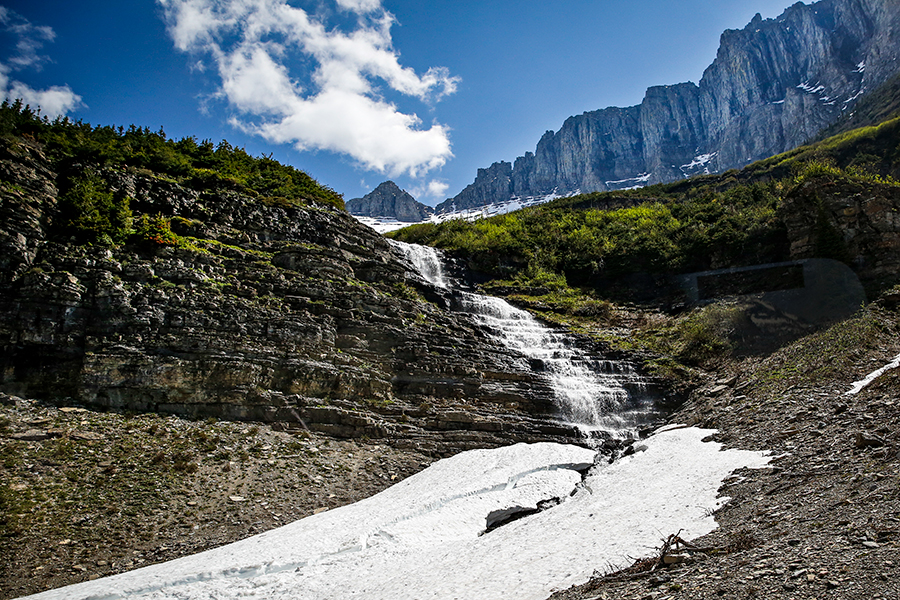Youth Climate Change Lawsuit Clears Pretrial Conference, Trial Set to Proceed
In Held v. Montana, 16 Montana youth plaintiffs look ahead to their day in court after judge confirmed trial is set for June 12
By Micah Drew
A youth-driven constitutional climate change lawsuit cleared a pretrial conference in April and is set to go to bench trial before Lewis and Clark County First Judicial District Court Judge Kathy Seeley on June 12.
The lawsuit, Held v. State of Montana, was filed in 2020 by 16 youth plaintiffs between the ages of 2 and 18, alleging that by continually bolstering the fossil fuel industry through state policy, Montana’s administrative agencies were violating the youths’ constitutional rights to a clean and healthy environment.
In August 2021, Held became the first lawsuit of its kind allowed to proceed to trial following Seeley’s landmark decision. Similar youth-led climate change cases have been filed in other states and against the federal government, but almost all have been dismissed in recent years. A lawsuit in Hawaii was recently scheduled for trial this fall.
The lawsuit is predicated on two Montana statutes: the State Energy Policy, which directs energy production and utilization in that state, and a provision in the Montana Environmental Policy Act (MEPA) that prevents the state from considering how projects may contribute to climate change on a regional or national level. The plaintiffs allege that the two policies are unconstitutional based on sections of Montana’s Constitution which provide for “the right to a clean and healthful environment,” and mandate that “the state and each person shall maintain and improve a clean and healthful environment for present and future generations.”
During the April 24 pretrial conference, counsel representing both sides tangled over the possibility of an additional hearing on a defense motion for summary judgment, wherein attorneys for the defendants requested the court decide the case without going to bench trial.
Seeley told counsel for the defendants she didn’t know if she was “going to get much out of an oral argument,” according to a transcript of the proceeding; however, the attorneys filed the motion that day and a hearing is scheduled for May 12 in Helena.
In the nearly 20 months that have passed since Seeley’s decision allowing the case to proceed to trial, the defendants have been represented by 16 different attorneys who have exhausted all legal avenues available to delay or prevent the case from moving forward.
Most recently, the defendants filed a motion to stay due to a lawsuit in Yellowstone County regarding permitting of a gas plant in Laurel and a motion to partially dismiss the case on mootness, based on the Legislature’s repeal of one of the primary statutes in the case — the State Energy Policy. In March, the Legislature passed House Bill 170, which repealed the section of Montana Code Annotated outlining the state’s energy policy goals, including expanding fossil fuel exploration and extraction, which the defendants claim now renders moot all claims predicated on that statute. Attorney General Austin Knudsen filed an April 3 brief in support of the motion to partially dismiss, writing “there is no longer any live controversy for the Court to resolve.”
In an opposing brief, lawyers for the plaintiffs argued the policy’s repeal was done “not to change the policy, practice or on-the-ground implementation of the policy and cure the constitutional violations Plaintiffs allege, but to try to avoid a trial by tearing up the piece of paper all the while carrying out its directive.”
“We’re challenging the energy system and policy of Montana that existed for decades, whether it was eventually codified or not,” Roger Sullivan, a lawyer for the plaintiffs, told the Beacon.
During hearings on House Bill 170, the governor’s Natural Resources Policy Advisor, Michael Freeman, stated that the repeal of the energy policy “does not conflict with the [Governor’s] energy policy” and that the state still has “a very comprehensive energy policy,” an “all-of-the-above” policy.
Another legislative action, a late-session passage of a bill modifying MEPA and prohibiting the state form analyzing greenhouse gas emissions in permitting decisions, also came up during the pre-trial conference.
“As we are here, the targets are moving,” Sullivan told the court. “They’re moving by the design of the state of Montana. But to use those machinations to deprive the youth plaintiffs of their constitutional rights … makes no sense.”
Seeley told counsel that the June 12 trial was going to proceed. “I am not going to delay this trial. Whatever is left to go to trial, is going to trial.”
Speaking to the Beacon, Sullivan said that Held goes after the “fossil fuel energy paradigm.”
“I’ve participated in a number of challenges to individual projects that have challenged fossil fuel permits or stopped the permit from being issued in the first place … but it’s akin to putting your finger in the dike,” Sullivan said. “As you’ll hear during expert testimony at the trial, we’re at a critical juncture in time, there’s an ever-cascading consequence of effects that are almost upon us. It’s necessary at this point to take on the whole energy paradigm.
The suit is named after plaintiff Rikki Held of Broadus, who was the only plaintiff of age when the suit was filed. Other plaintiffs include Kian Tanner of Bigfork and Lander and Badge Busse of Kalispell, as well as youth from Missoula, Bozeman, Polson, Helena, Livingston and the Flathead Indian Reservation. The plaintiffs are represented by attorney Nathan Bellinger of Our Children’s Trust, as well as Roger Sullivan and Dustin Leftridge of Kalispell’s McGarvey Law and Barbara Chillcott and Melissa Hornbein of the Helena-based Western Environmental Law Center. Our Children’s Trust is an Oregon-based nonprofit public interest law firm that litigates a wide array of youth-based climate lawsuits.
The suit names Montana’s governor, Greg Gianforte, the Department of Environmental Quality, Department of Natural Resources and Conservation, Department of Transportation and the Public Service Commission as defendants.